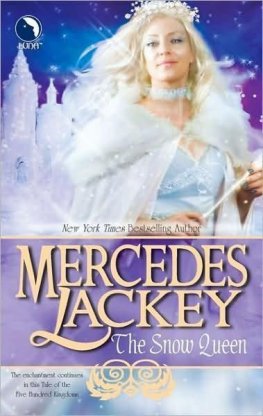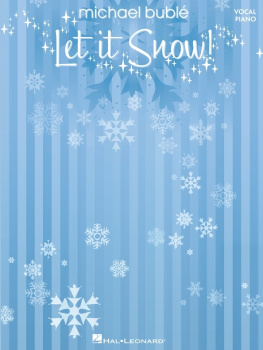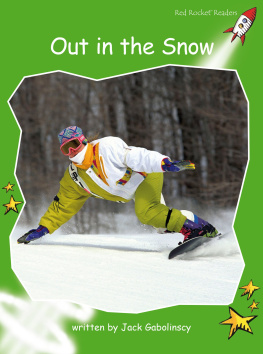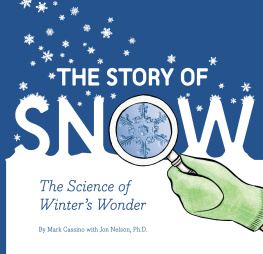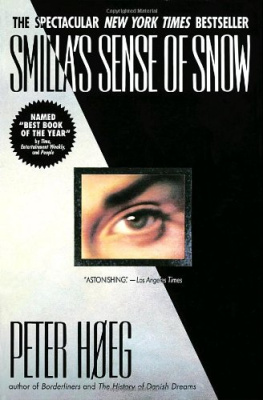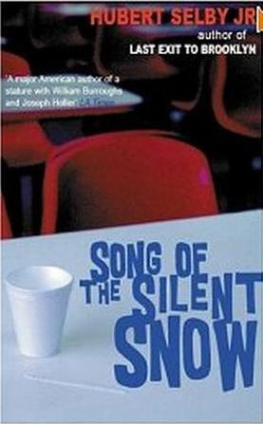Konrad Ejken - Silent Snow, Secret Snow
Here you can read online Konrad Ejken - Silent Snow, Secret Snow full text of the book (entire story) in english for free. Download pdf and epub, get meaning, cover and reviews about this ebook. genre: Romance novel. Description of the work, (preface) as well as reviews are available. Best literature library LitArk.com created for fans of good reading and offers a wide selection of genres:
Romance novel
Science fiction
Adventure
Detective
Science
History
Home and family
Prose
Art
Politics
Computer
Non-fiction
Religion
Business
Children
Humor
Choose a favorite category and find really read worthwhile books. Enjoy immersion in the world of imagination, feel the emotions of the characters or learn something new for yourself, make an fascinating discovery.

- Book:Silent Snow, Secret Snow
- Author:
- Genre:
- Rating:4 / 5
- Favourites:Add to favourites
- Your mark:
- 80
- 1
- 2
- 3
- 4
- 5
Silent Snow, Secret Snow: summary, description and annotation
We offer to read an annotation, description, summary or preface (depends on what the author of the book "Silent Snow, Secret Snow" wrote himself). If you haven't found the necessary information about the book — write in the comments, we will try to find it.
Silent Snow, Secret Snow — read online for free the complete book (whole text) full work
Below is the text of the book, divided by pages. System saving the place of the last page read, allows you to conveniently read the book "Silent Snow, Secret Snow" online for free, without having to search again every time where you left off. Put a bookmark, and you can go to the page where you finished reading at any time.
Font size:
Interval:
Bookmark:
Conrad Aiken
Silent Snow, Secret Snow
I
Just why it should have happened, or why it should have happened just when it did, he could not, of course, possibly have said; nor perhaps could it even have occurred to him to ask. The thing was above all a secret, something to be preciously concealed from Mother and Father; and to that very fact it owed an enormous part of its deliciousness. It was like a peculiarly beautiful trinket to be carried unmentioned in one's trouser-pocket a rare stamp, an old coin, a few tiny gold links found trodden out of shape on the path in the park, a pebble of carnelian, a sea shell distinguishable from all others by an unusual spot or stripe and, as if it were any one of these, he carried around with him everywhere a warm and persistent and increasingly beautiful sense of possession. Nor was it only a sense of possession it was also a sense of protection. It was as if, in some delightful way, his secret gave him a fortress, a wall behind which he could retreat into heavenly seclusion. This was almost the first thing he had noticed about it apart from the oddness of the thing itself and it was this that now again, for the fiftieth time, occurred to him, as he sat in the little schoolroom. It was the half hour for geography. Miss Buell was revolving with one finger, slowly, a huge terrestrial globe which had been placed on her desk. The green and yellow continents passed and repassed, questions were asked and answered, and now the little girl in front of him, Deirdre, who had a funny little constellation of freckles on the back of her neck, exactly like the Big Dipper, was standing up and telling Miss Buell that the equator was the line that ran round the middle.
Miss Buell's face, which was old and grayish and kindly, with gray stiff curls beside the cheeks, and eyes that swam very brightly, like little minnows, behind thick glasses, wrinkled itself into a complication of amusements.
"Ah! I see. The earth is wearing a belt, or a sash. Or someone drew a line round it!"
"Oh, no not that I mean "
In the general laughter, he did not share, or only a very little. He was thinking about the Arctic and Antarctic regions, which of course, on the globe, were white. Miss Buell was now telling them about the tropics, the jungles, the steamy heat of equatorial swamps, where the birds and butterflies, and even the snakes, were like living jewels. As he listened to these things, he was already, with a pleasant sense of half-effort, putting his secret between himself and the words. Was it really an effort at all? For effort implied something voluntary, and perhaps even something one did not especially want; whereas this was distinctly pleasant, and came almost of its own accord. All he needed to do was to think of that morning, the first one, and then of all the others
But it was all so absurdly simple! It had amounted to so little. It was nothing, just an idea and just why it should have become so wonderful, so permanent, was a mystery a very pleasant one, to be sure, but also, in an amusing way, foolish. However, without ceasing to listen to Miss Buell, who had now moved up to the north temperate zone, he deliberately invited his memory of the first morning. It was only a moment or two after he had waked up or perhaps the moment itself. But was there, to be exact, an exact moment? Was one awake all at once? Or was it gradual? Anyway, it was after he had stretched a lazy hand up towards the headrail, and yawned, and then relaxed again among his warm covers, all the more grateful on a December morning, that the thing had happened. Suddenly, for no reason, he had thought of the postman, he remembered the postman.
Perhaps there was nothing so odd in that. After all, he heard the postman almost every morning in his life his heavy boots could be heard clumping round the corner at the top of the little cobbled hill-street, and then, progressively nearer, progressively louder, the double knock at each door, the crossings and re-crossings of the street, till finally the clumsy steps came stumbling across to the very door, and the tremendous knock came which shook the house itself.
(Miss Buell was saying "Vast wheat-growing areas in North America and Siberia."
Deirdre had for the moment placed her left hand across the back of her neck.)
But on this particular morning, the first morning, as he lay there with his eyes closed, he had for some reason waited for the postman. He wanted to hear him come round the corner. And that was precisely the joke he never did. He never came. He never had come round the corner again. For when at last the steps were heard, they had already, he was quite sure, come a little down the hill, to the first house; and even so, the steps were curiously different they were softer, they had a new secrecy about them, they were muffled and indistinct; and while the rhythm of them was the same, it now said a new thing it said peace, it said remoteness, it said cold, it said sleep. And he had understood the situation at once nothing could have seemed simpler there had been snow in the night, such as all winter he had been longing for; and it was this which had rendered the postman's first footsteps inaudible, and the later ones faint. Of course! How lovely! And even now it must be snowing it was going to be a snowy day the long white ragged lines were drifting and sifting across the street, across the faces of the old houses, whispering and hushing, making little triangles of white in the corners between cobblestones, seething a little when the wind blew them over the ground to a drifted corner; and so it would be all day, getting deeper and deeper and silenter and silenter.
(Miss Buell was saying "Land of perpetual snow.")
All this time, of course (while he lay in bed), he had kept his eyes closed, listening to the nearer progress of the postman, the muffled footsteps thumping and slipping on the snow-sheathed cobbles; and all the other sounds the double knocks, a frosty far-off voice or two, a bell ringing thinly and softly as if under a sheet of ice had the same slightly abstracted quality, as if removed by one degree from actuality as if everything in the world had been insulated by snow. But when at last, pleased, he opened his eyes, and turned them towards the window, to see for himself this long-desired and now so clearly imagined miracle what he saw instead was brilliant sunlight on a roof; and when, astonished, he jumped out of bed and stared down into the street, expecting to see the cobbles obliterated by the snow, he saw nothing but the bare bright cobbles themselves.
Queer, the effect this extraordinary surprise had had upon him all the following morning he had kept with him a sense as of snow falling about him, a secret screen of new snow between himself and the world. If he had not dreamed such a thing and how could he have dreamed it while awake? how else could one explain it? In any case, the delusion had been so vivid as to affect his entire behavior. He could not now remember whether it was on the first or the second morning or was it even the third? that his mother had drawn attention to some oddness in his manner.
"But my darling" she had said at the breakfast table "what has come over you? You don't seem to be listening. " And how often that very thing had happened since! (Miss Buell was now asking if anyone knew the difference between the North Pole and the Magnetic Pole. Deirdre was holding up her flickering brown hand, and he could see the four white dimples that marked the knuckles.)
Perhaps it hadn't been either the second or third morning or even the fourth or fifth. How could he be sure? How could he be sure just when the delicious progress had become clear? Just when it had really begun? The intervals weren't very precise. All he now knew was, that at some point or other perhaps the second day, perhaps the sixth he had noticed that the presence of the snow was a little more insistent, the sound of it clearer; and, conversely, the sound of the postman's footsteps more indistinct. Not only could he not hear the steps come round the corner, he could not even hear them at the first house. It was below the first house that he heard them; and then, a few days later, it was below the second house that he heard them; and a few days later again, below the third. Gradually, gradually, the snow was becoming heavier, the sound of its seething louder, the cobblestones more and more muffled. When he found, each morning, on going to the window, after the ritual of listening, that the roofs and cobbles were as bare as ever, it made no difference. This was, after all, only what he had expected. It was even what pleased him, what rewarded him: the thing was his own, belonged to no one else. No one else knew about it, not even his mother and father. There, outside, were the bare cobbles; and here, inside, was the snow. Snow growing heavier each day, muffling the world, hiding the ugly, and deadening increasingly above all the steps of the postman.
Font size:
Interval:
Bookmark:
Similar books «Silent Snow, Secret Snow»
Look at similar books to Silent Snow, Secret Snow. We have selected literature similar in name and meaning in the hope of providing readers with more options to find new, interesting, not yet read works.
Discussion, reviews of the book Silent Snow, Secret Snow and just readers' own opinions. Leave your comments, write what you think about the work, its meaning or the main characters. Specify what exactly you liked and what you didn't like, and why you think so.

